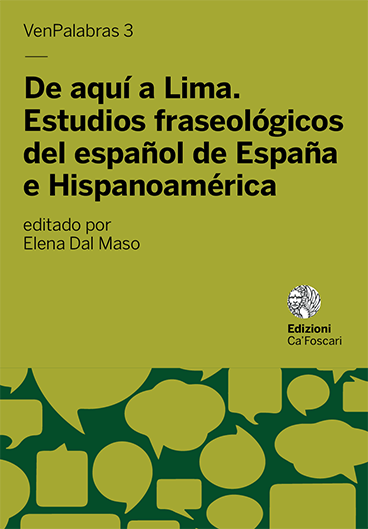- search 193 views
- file_download 24 download
- keyboard_capslock metadata
-
mark_email_readIscriviti alla newsletter
Expresiones con doble ‘nacionalidad’ lingüística
abstract
In Spanish, there are locutions with a homophonous literal counterpart, or, in other words, polisemous expressions that can be analysed in two different ways in virtue of their meaning. The literal counterpart can be a free construction or syntagm, as tirar la toalla; a compound, such as perro faldero; a lexical collocation, such as tocar el violín; or a verb construction composed by a light verb, as dar una lección. In this sense, these expressions have two means of categorization according to both senses, and thus belong to different fields: phraseology, morphology, syntax. Obviously, they have different grammatical structure. We had named them “expressions of double linguistic nationality”. Furthermore, there are locutions with only idiomatic sense, as tirar la casa por la ventana ‘to spare no expenses’, and polisemous ones with two or more idiomatic senses without literal counterpart, as dar de ojos ‘to make a mistake’, ‘to fall flat on someone’s face’, ‘to come across someone’. All the examples have been taken from DLE.
Keywords: Phraseology • Composition • Lexicography • Locution • Collocation




